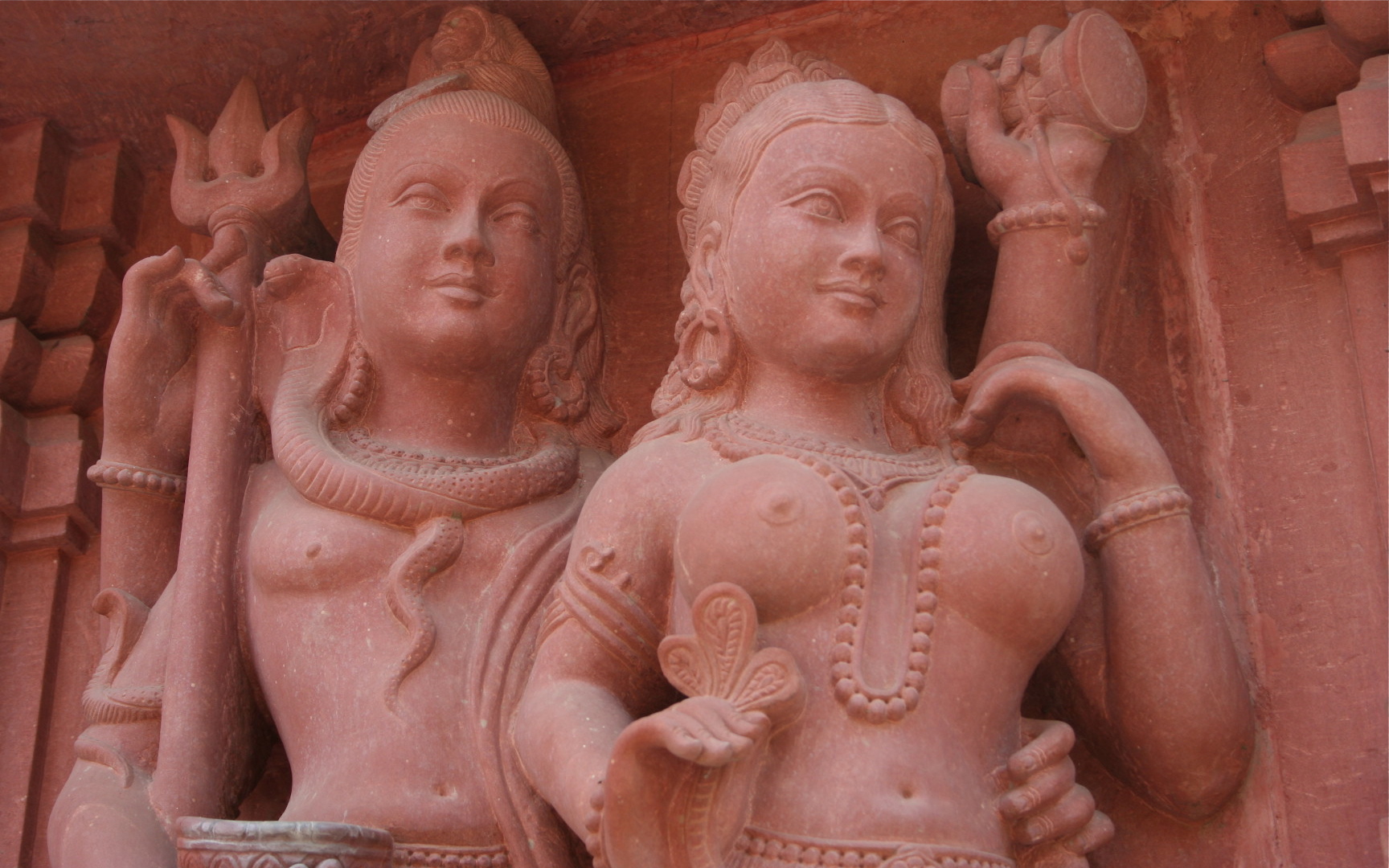The Mahanirvana Tantra consists of a dialogue between Shiva and his consort Parvati (a manifestation of Shakti that is associated with nurturing and kind qualities). They are atop a mountain and Parvati is asking Shiva about the Yugas (the ages), and which are the best scriptures and practices for each Yuga. She is worried about the soul of humanity during the Kali Yuga (the dark age) and is imploring Shiva to help. Shiva tells Parvati that the practices given in the Tantras are the essential practices for the Kali Yuga. Other practices are too high minded and will not aid us during the dark age.

First Chapter
In the first chapter we have this beautiful description of Shiva:
“…the Silent Deva, Lord of all things movable and immovable, the ever Beneficent and ever Blissful One, the nectar of Whose mercy abounds as a great ocean, Whose very essence is the Pure Sattva Guna, He Who is white as camphor and the Jasmine flower, the Omnipresent One, Whose raiment is space itself, Lord of the poor and the beloved Master of all yogi, Whose coiled and matted hair is wet with the spray of Ganga and (of Whose naked body) ashes are the adornment only; the passionless One, Whose neck is garlanded with snakes and skulls of men, the three-eyed One, Lord of the three worlds, with one hand wielding the trident and with the other bestowing blessings; easily appeased, Whose very substance is unconditioned Knowledge; the Bestower of eternal emancipation, the Ever-existent, Fearless, Changeless, Stainless, One without defect, the Benefactor of all, and the Deva of all Devas.”
Second Chapter
In the second chapter Shiva instructs that we should first and foremost worship Brahman, the Lord of all;
“There is none other but Him to meditate upon, to pray to, to worship for the attainment of liberation (52). Need there is none to trouble, to fast, to torture one’s body, to follow rules and customs, to make large offerings; need there is none to be heedful as to time nor as to Nyasa or Mudra, wherefore, O Kuleshani! who will strive to seek shelter elsewhere than with Him? “
Third Chapter
In chapter 3 Shiva instructs how to worship Brahman. He tells us that purity of heart is essential. He gives ritual practices and mantras and offers a beautiful hymn to Brahman;
“Ong! I bow to Thee, the eternal Refuge of all:
I bow to Thee, the pure Intelligence manifested in the universe.
I bow to Thee Who in His essence is One and Who grants liberation.
I bow to Thee, the great, all-pervading attributeless One (59).
Thou art the only Refuge and Object of adoration.
The whole universe is the appearance of Thee Who art its Cause.
Thou alone art Creator, Preserver, Destroyer of the world.
Thou art the sole immutable Supreme, Who art neither this nor that (60);
Dread of the dreadful, Terror of the terrible.
Refuge of all beings, Purificator of all purificators.
Thou alone rulest the high-placed ones,
Supreme over the supreme, Protector of the Protectors (61).
O Supreme Lord in Whom all things are, yet Unmanifest in all,
Imperceptible by the senses, yet the very truth.
Incomprehensible, Imperishable, All-pervading hidden Essence.
Lord and Light of the Universe! save us from harm (62).
On that One alone we meditate, that One alone we in mind worship,
To that One alone the Witness of the Universe we bow.
Refuge we seek with the One Who is our sole Eternal Support,
The Self-existent Lord, the Vessel of safety in the ocean of being (63).
This is the five-jewelled hymn to the Supreme Soul.”
Fourth Chapter
In the fourth chapter we learn that union with Brahman may also be achieved by union with Shakti. Shakti birthed all of Creation and will exist in her formless state when Creation dissolves. Shiva tells us you need not be a slave of the Kali Yuga if you are pure and if you follow the rites and rituals of Kaulika (Shakti worship). In this chapter we have a wonderful description of Shakti;
“…whatever there is in this world, of things which have and are without motion, from Mahat to an atom, owes its origin to and is dependent on Thee (11). Thou art the Original of all the manifestations; Thou art the birthplace of even Us; Thou knowest the whole world, yet none know Thee (12).
Thou art Kali, Tarini, Durga, Shodashi, Bhuvaneshvari, Dhumavati. Thou art Bagala, Bhairavi, and Chhinna-mastaka. Thou art Anna-purna, Vagdevi, Kama-lalaya. Thou art the Image or Embodiment of all the Shaktis and of all the Devas (13-14). Thou art both Subtle and Gross, Manifested and Veiled, Formless, yet with form. Who can understand Thee? (15). For the accomplishment of the desire of the worshipper, the good of the world, and the destruction of the Danavas, Thou dost assume various forms (16). Thou art four-armed, two-armed, six-armed, and eight-armed, and holdest various missiles and weapons for the protection of the Universe (17).”
